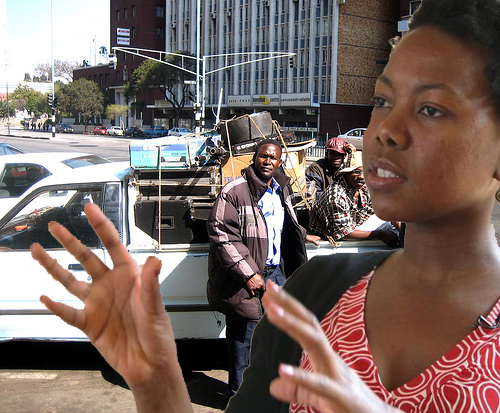 With my own novel set in Africa now being published, I was incredibly chagrined to meet (through her writings) Noviolet Bulawayo, certainly Africa’s best writer by far.
With my own novel set in Africa now being published, I was incredibly chagrined to meet (through her writings) Noviolet Bulawayo, certainly Africa’s best writer by far.
In my book, Chasm Gorge, I try to paint a story in the troubled areas of northern Kenya and southern Sudan, but I’m necessarily doing it as an outsider.
Ms. Bulawayo is an insider, and for so long I’ve been waiting for an African writer to step forward and tell “it like it is.”
There’s no holes barred in her tales set in very troubled Zimbabwe. She is reticent about linking these tales to politics which irritates me, but I’m sure folks will find my linkages overbearing and irritating in the reverse way.
It’s been a long time coming. Until now, in my opinion, African writers have been harnessed to their colonial past, extremely reluctant to call a spade a spade, a racist gang of African thugs a racist gang of African thugs.
But that’s what Ms. Bulawayo does.
The market for African literature has been dominated by either landscape artists or patient, wise old men. Africa has been considerably more complex than that for several generations. But except for a few hiphop artists now behind bars in Angola, African artists have shied away from the controversial nature of their uniquely personal trials.
Thirty years and a half continent divide myself from Ms. Bulawayo, yet I’ll be so immodest as to suggest we share a couple things, the most important being a love of African languages.
In creating my novel, Chasm Gorge, there were many who criticized what I felt was the relatively sparse use of Swahili without further explanation in the text.
As one of my characters points out in the book, “There’s no poetry in the language” of the west. But Africa is filled with it. You don’t have to study iambic pentameter to be a poet. You just have to say hello and goodbye.
Ms. Bulawayo was criticized when returning to southern Africa from her studies in America for “not having an American accent,” something that is an increasingly stylish component of an African educated abroad.
Fessing up to the personal struggle of leaving her home to become educated in order to better understand her home, Ms. Bulawayo told This Day, “I have to look backward at home with a new set of eyes that have made me embrace my language as a true identity.”
At the ripe age of 33, she has won more awards – in both Africa and the west – than most writers could hope for in a life time.
Her newest book, We Need New Names, is available on Amazon.
It’s hardly over. The promising future of her writing, that is. It is definitely over, the winter of no real African writing.